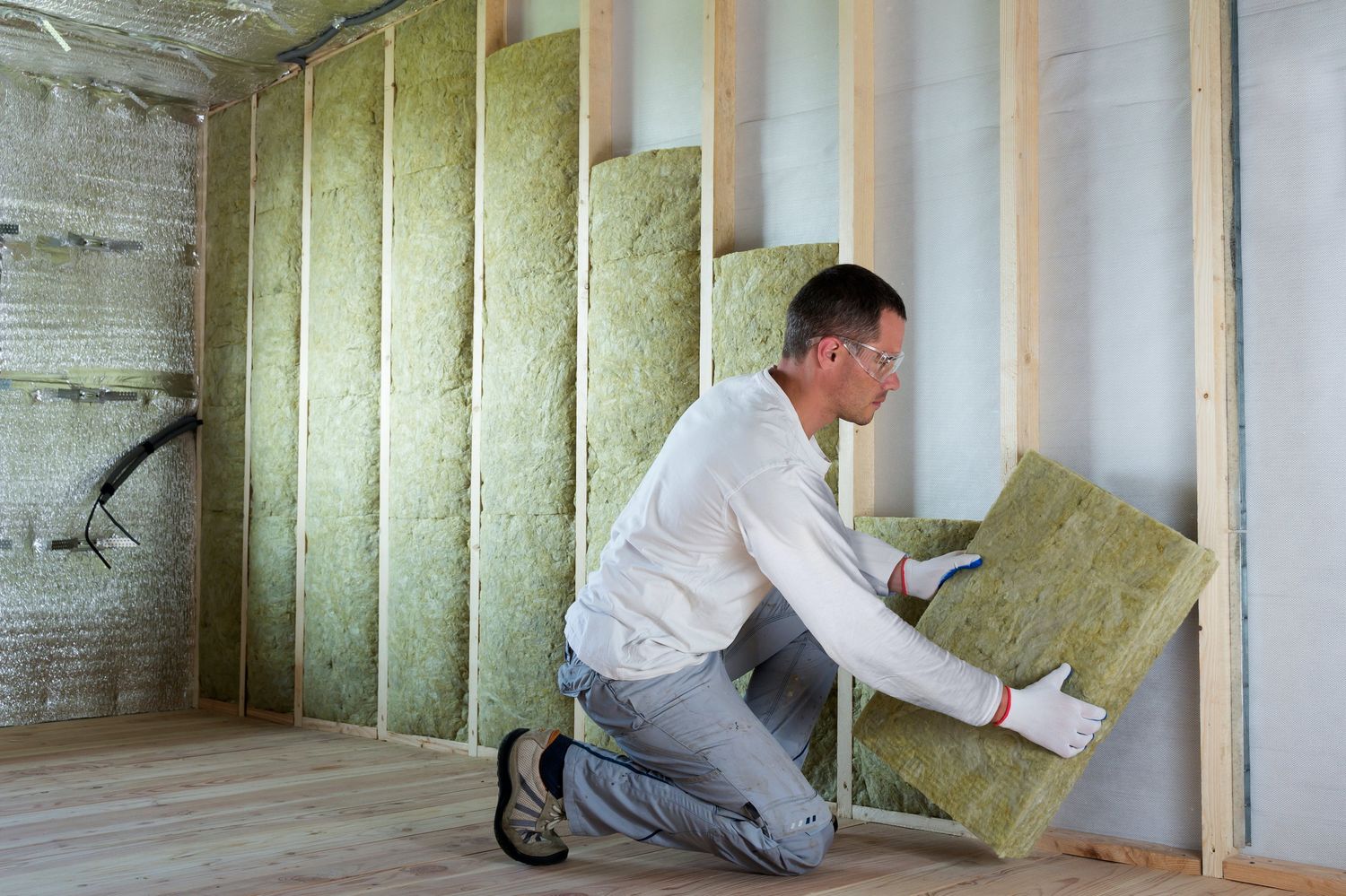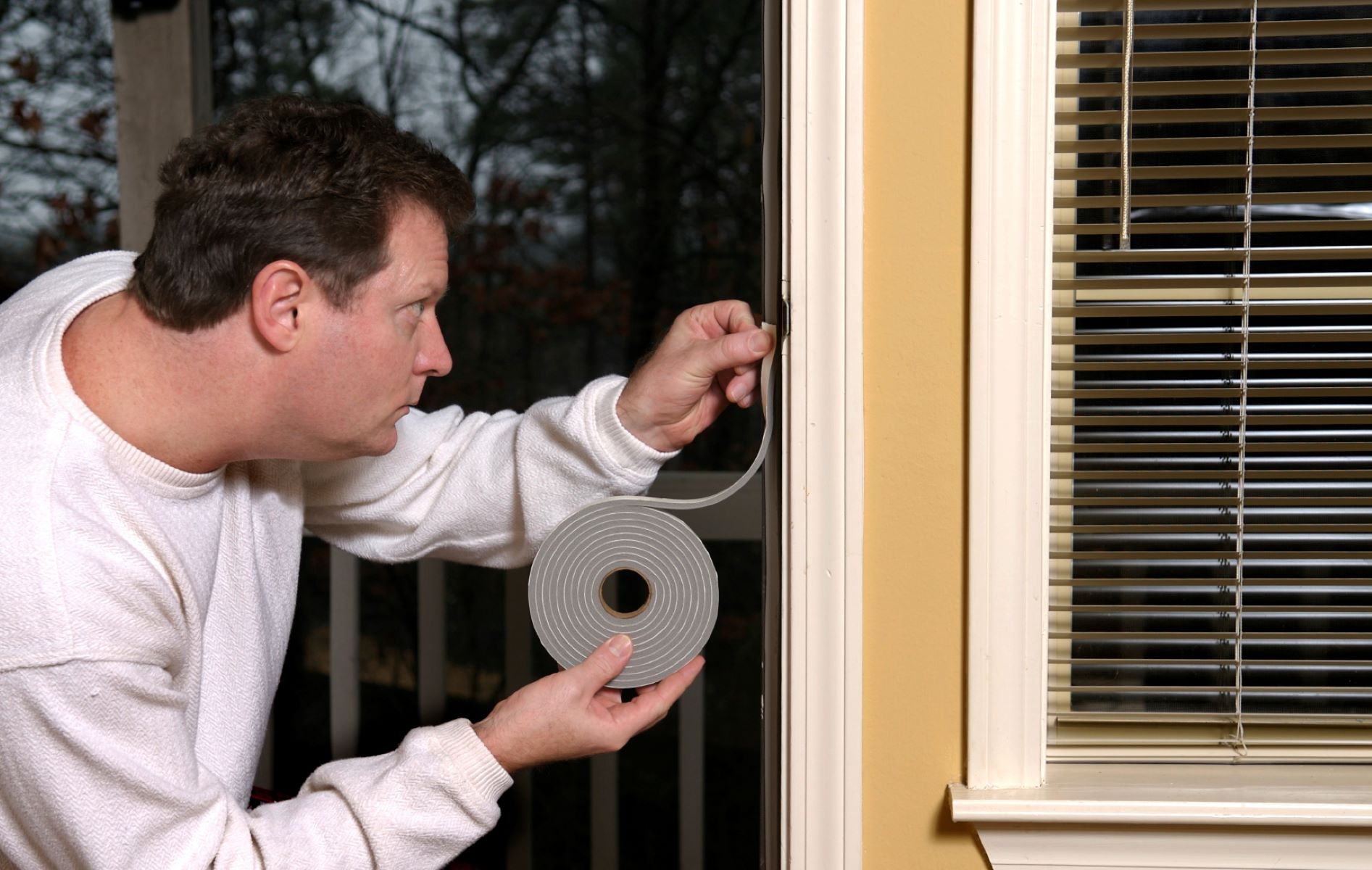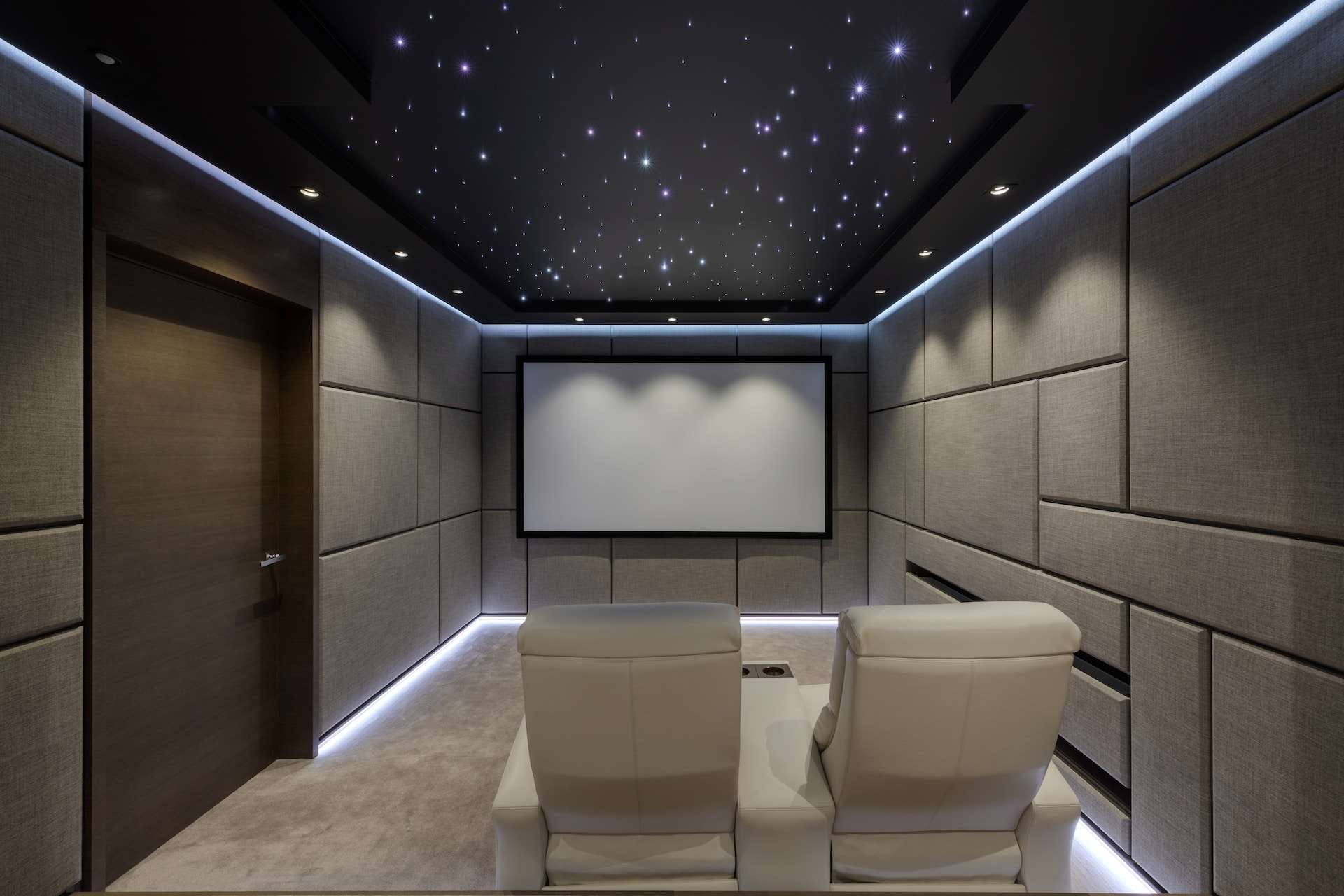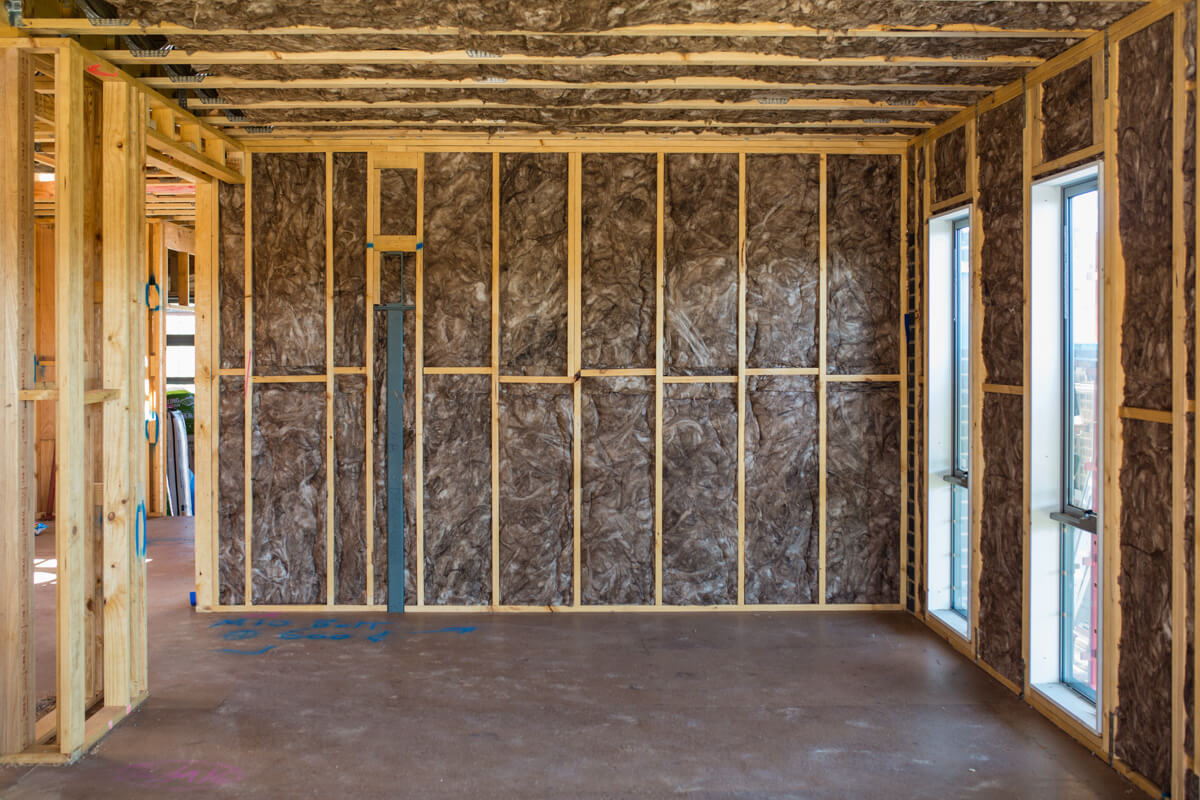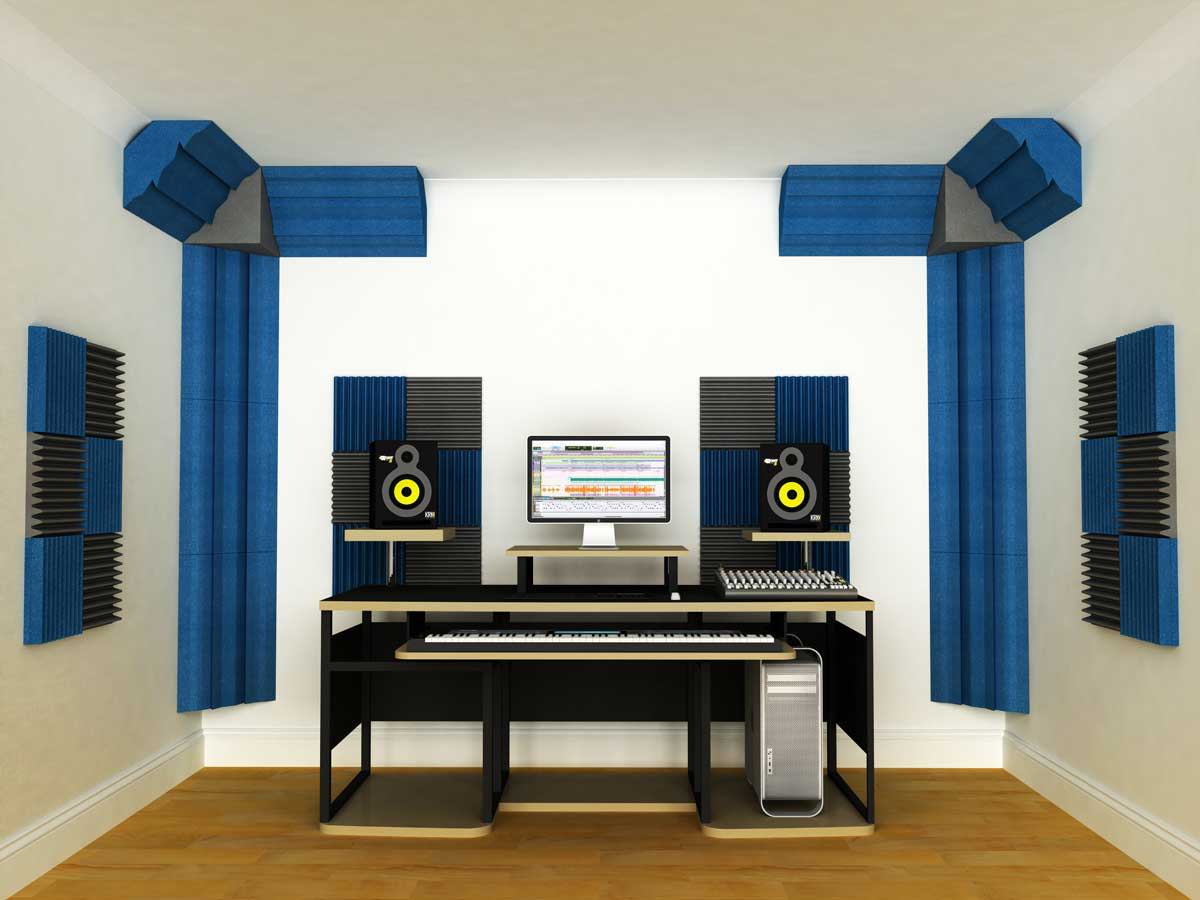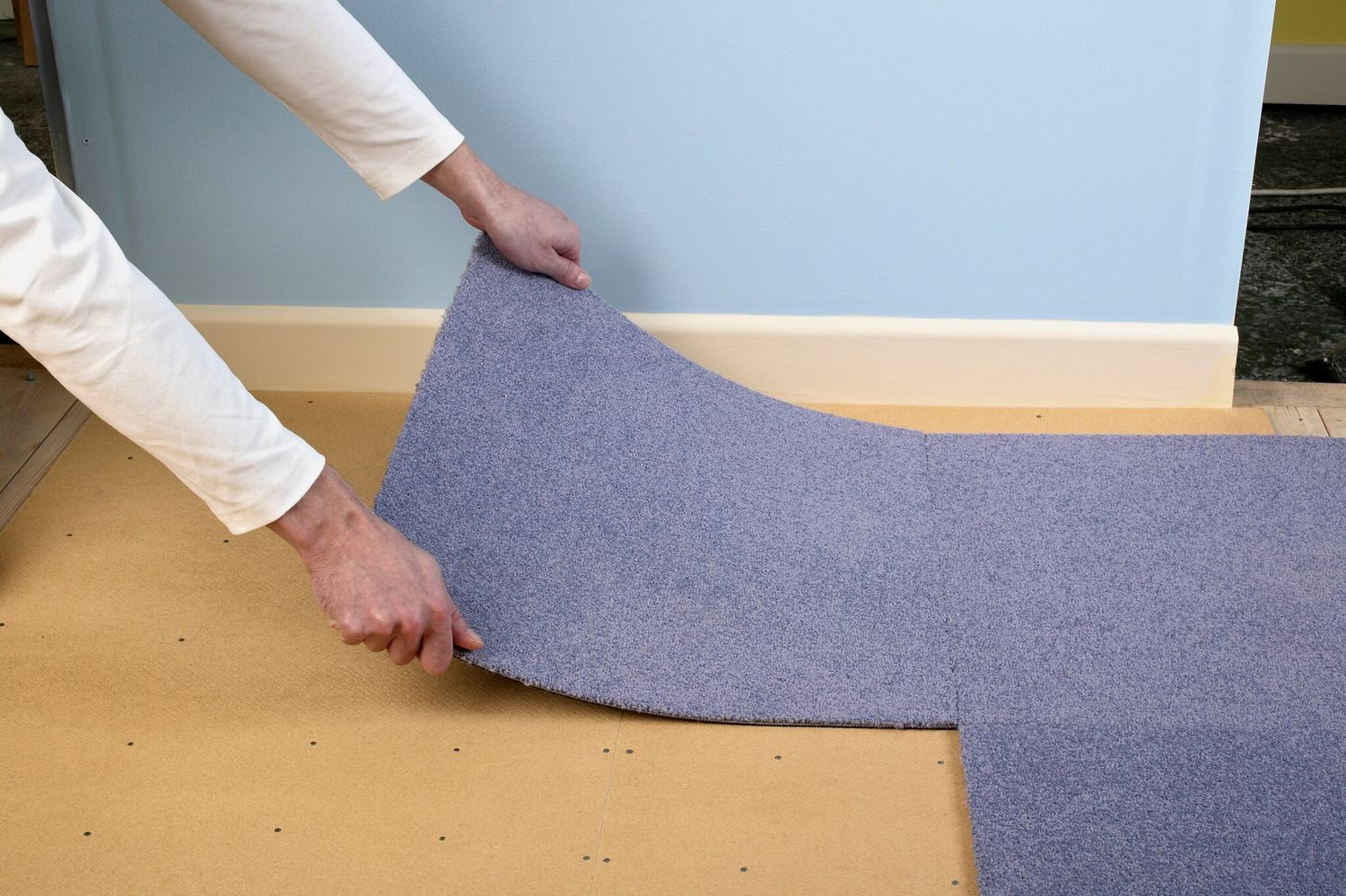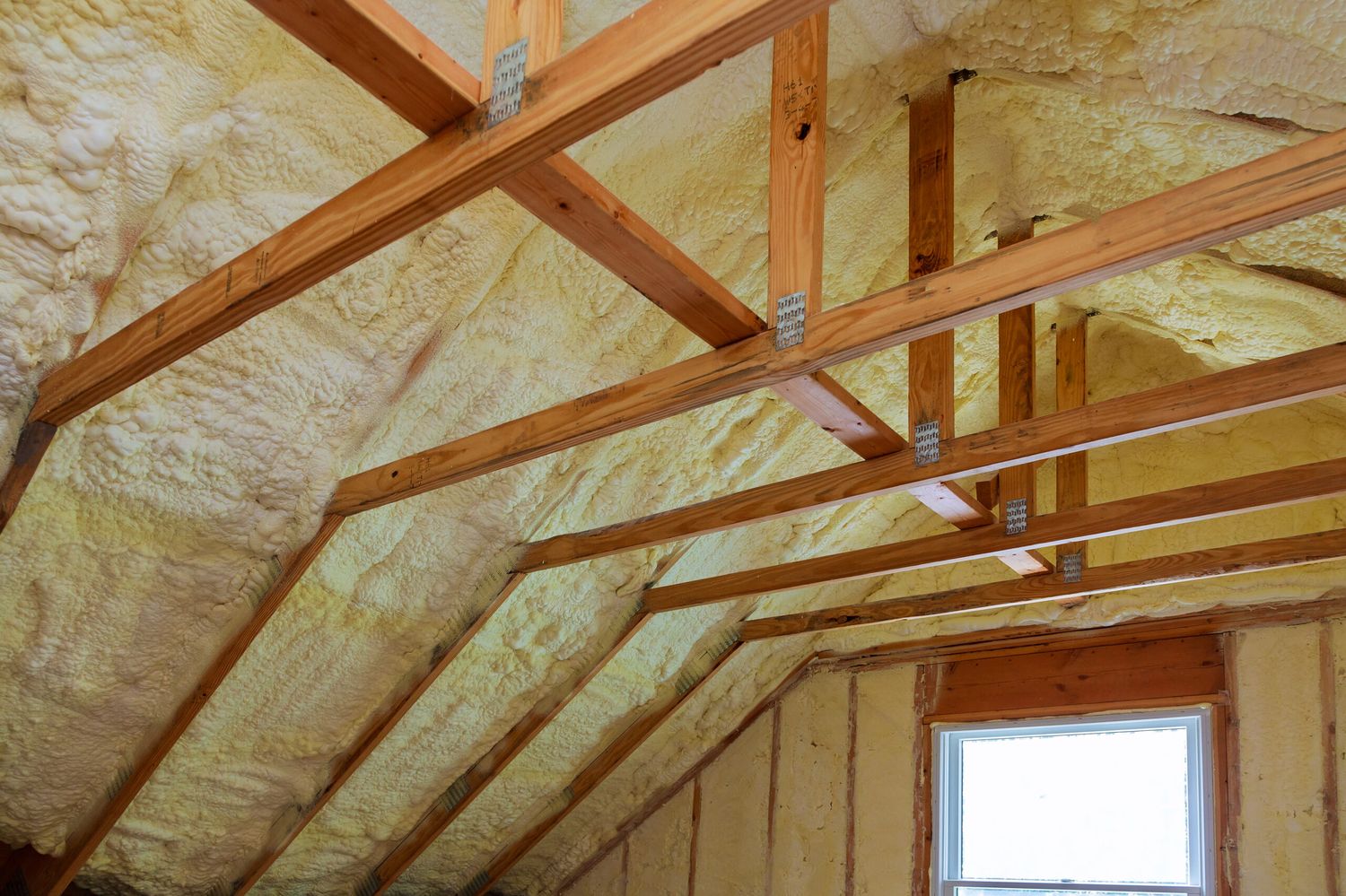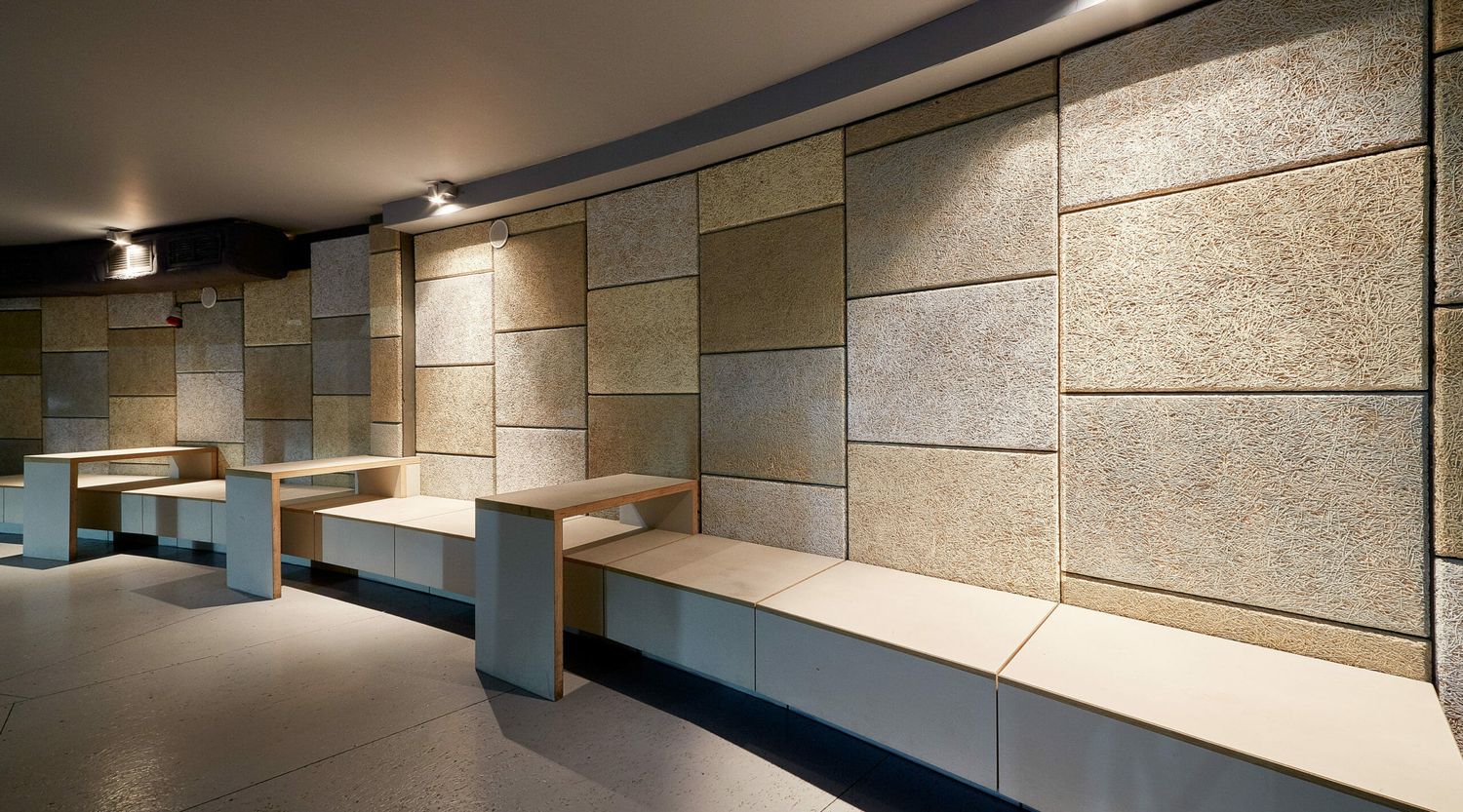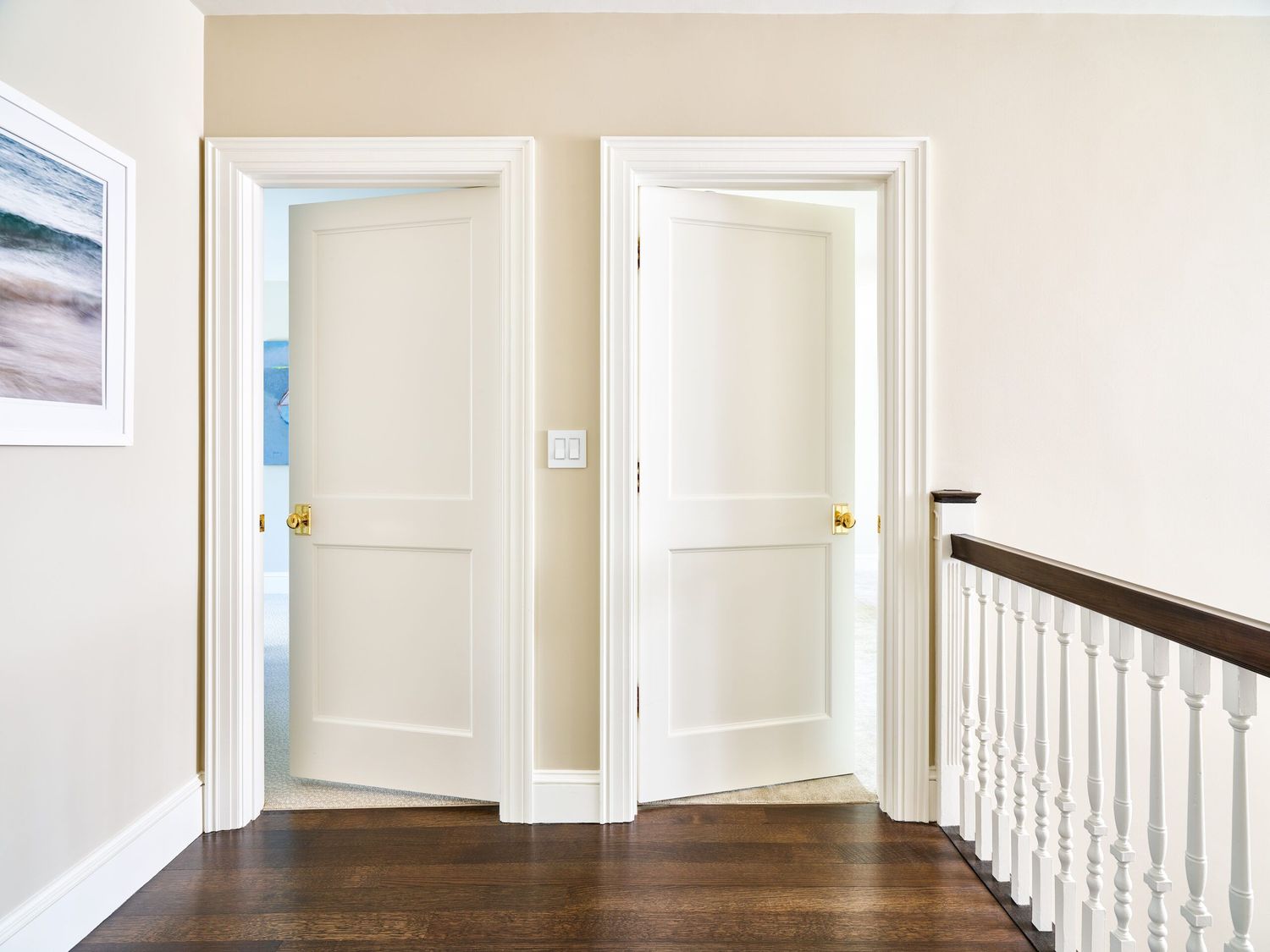Home>Production & Technology>Soundproofing>What Is The Best Soundproofing For Fences
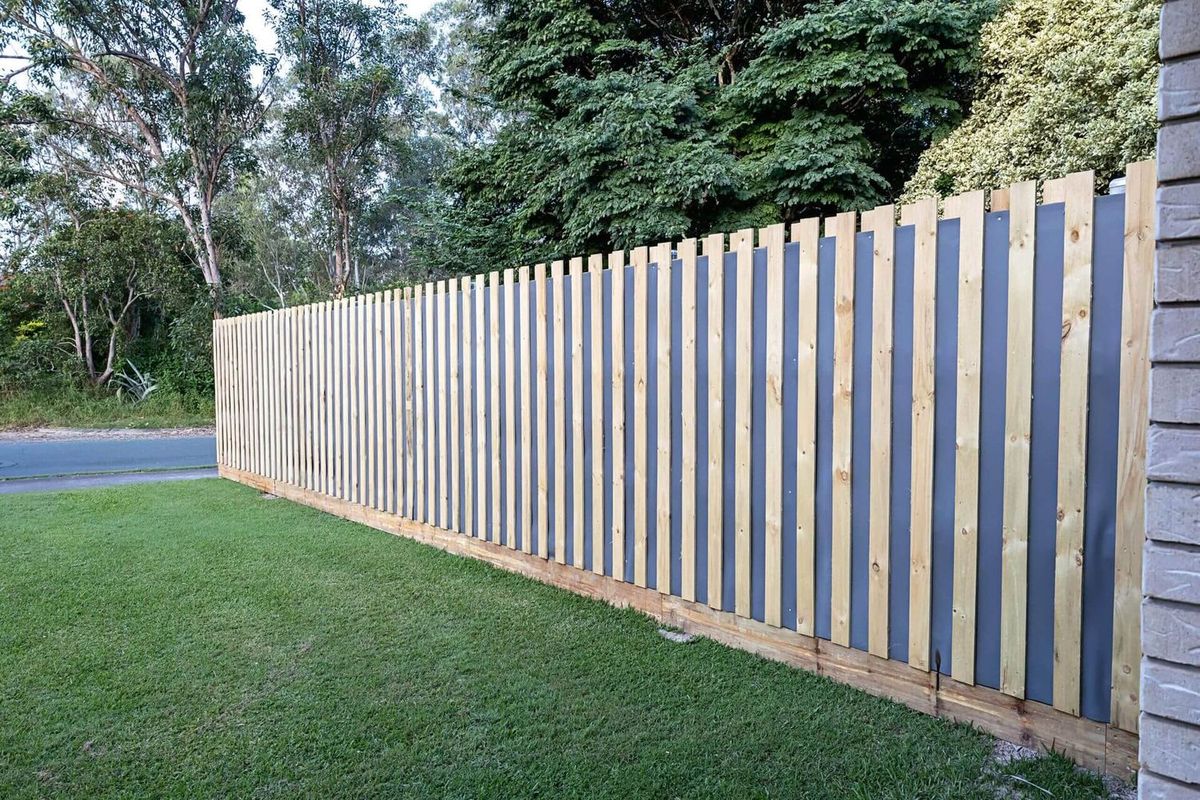

Soundproofing
What Is The Best Soundproofing For Fences
Published: January 27, 2024
Looking to soundproof your fences? Discover the best soundproofing solutions for fences and achieve a quieter outdoor space.
(Many of the links in this article redirect to a specific reviewed product. Your purchase of these products through affiliate links helps to generate commission for AudioLover.com, at no extra cost. Learn more)
Table of Contents
Introduction
When it comes to creating a peaceful and quiet environment, soundproofing our indoor spaces is often a top priority. However, many people overlook the importance of soundproofing their outdoor areas, especially fences. Whether you live in a busy neighborhood, near a highway, or have noisy neighbors, soundproofing your fence can significantly reduce unwanted outdoor noise, making your outdoor space more enjoyable and serene.
Soundproofing fences involves the use of various materials and techniques to block, absorb, or redirect sound waves. These methods can help create a barrier that prevents noise from penetrating through the fence and into your yard. By implementing effective soundproofing measures, you can create a peaceful oasis where you can relax, entertain guests, or engage in activities without being disturbed by external noise.
In this article, we will explore the different options available for soundproofing fences, considering factors like effectiveness, durability, and aesthetic appeal. We will delve into the advantages and limitations of each option to help you choose the soundproofing solution that best suits your needs.
Before diving into specific soundproofing techniques, it’s important to assess the noise sources around your property. Identify the primary sources of noise, such as traffic, loud music, or machinery, to determine the best approach for soundproofing your fence. The following sections will outline various soundproofing methods that you can consider implementing to reduce outdoor noise effectively.
Understanding the Importance of Soundproofing Fences
Soundproofing fences play a crucial role in creating a peaceful and quiet outdoor living space. By effectively blocking or absorbing sound waves, these soundproofing measures can significantly reduce external noise and improve your overall quality of life. Here are some reasons why soundproofing fences are important:
1. Privacy: Soundproofing your fence helps maintain privacy by preventing sound from traveling in and out of your property. Whether you’re having a backyard gathering or simply enjoying some alone time, soundproofing ensures that your conversations, activities, and personal space remain undisturbed by nosy neighbors or passersby.
2. Comfort: Excessive noise can be very disruptive and uncomfortable. By soundproofing your fence, you can create a peaceful and tranquil outdoor environment where you can relax, read a book, meditate, or engage in other activities without the constant distraction of noise pollution.
3. Better Sleep: If your bedroom is located near a noisy area, soundproofing your fence can greatly improve your sleep quality. By reducing noise from traffic, barking dogs, or any other external disturbances, you can create a serene sleeping environment and wake up feeling well-rested and refreshed.
4. Enjoyment of Outdoor Spaces: Soundproofing your fence allows you to fully enjoy your outdoor spaces without the constant intrusion of external noise. Whether it’s hosting outdoor parties, gardening, or simply spending time with family and friends, a soundproofed fence creates an environment that enhances your overall outdoor experience.
5. Increased Property Value: Installing soundproofing measures on your fence can add value to your property. Potential buyers or renters appreciate having the option to enjoy a quiet and peaceful yard, making your property more appealing in a noisy neighborhood.
Overall, soundproofing your fence can drastically improve your quality of life by creating a more serene and harmonious outdoor environment. It provides you with the privacy, comfort, and tranquility you deserve, allowing you to fully enjoy your time spent in your outdoor spaces.
Factors to Consider for Effective Soundproofing
When it comes to soundproofing your fence, it’s essential to consider various factors to ensure its effectiveness. Taking these factors into account will help you choose the right soundproofing materials and techniques for your specific needs. Here are some key factors to consider:
1. Noise Source and Frequency: Understand the primary sources of noise around your property and their frequency. Different soundproofing materials and techniques are suitable for blocking low-frequency sounds like traffic noise compared to high-frequency sounds like barking dogs. Identifying the dominant noise sources will help determine the most effective soundproofing solution.
2. Material Durability: Consider the durability of the soundproofing materials. Since fences are exposed to various weather conditions, it’s important to choose materials that can withstand rain, wind, and UV exposure without deteriorating. Opt for high-quality materials that are specifically designed for outdoor use to ensure long-lasting soundproofing performance.
3. Aesthetic Appeal: The visual aspect of your soundproof fence is also important. Choose soundproofing materials and techniques that blend seamlessly with the style and design of your home and outdoor space. This ensures that the soundproof fence not only serves its purpose but also enhances the overall aesthetic appeal of your property.
4. Installation Process: Consider the complexity of the installation process. Some soundproofing materials and techniques may require professional installation, while others can be easily installed as a DIY project. Evaluate your skill level and availability before choosing a soundproofing option that suits your abilities and preferences.
5. Cost: Soundproofing materials and techniques vary in price range. Set a budget and consider the cost of materials as well as any additional expenses, such as hiring professionals for installation, before making a decision. Remember to balance the cost with the effectiveness and durability of the soundproofing solution.
6. Maintenance Requirements: Different soundproofing materials may have varying maintenance needs. Some materials may require regular cleaning or periodic inspections for any signs of damage. Consider the maintenance requirements of the soundproofing option you choose and ensure you are willing to commit to the necessary upkeep.
By carefully considering these factors, you can make an informed decision when it comes to soundproofing your fence. This will help ensure that you choose the most effective and suitable soundproofing materials and techniques, resulting in a peaceful and noise-free outdoor environment.
Acoustic Panels for Fences
Acoustic panels are a popular choice for soundproofing fences due to their effectiveness in reducing noise. These panels are specifically designed to absorb sound waves, preventing them from bouncing off surfaces and transmitting through the fence. Here are some key features and benefits of using acoustic panels for soundproofing:
How They Work: Acoustic panels are typically made of porous materials, such as foam or fiberglass, that absorb sound waves. When the sound waves hit the panels, they enter the material and are converted into heat energy, effectively reducing the noise level.
Installation: Acoustic panels can be easily installed onto an existing fence. They are available in various sizes and shapes, allowing you to customize their placement based on the specific areas where noise is most problematic.
Effectiveness: Acoustic panels have a high sound absorption coefficient, making them highly effective in reducing noise levels. They are particularly effective at blocking higher frequency sounds like traffic noise or voices.
Aesthetic Appeal: Acoustic panels come in various colors and designs, allowing you to choose an option that complements the aesthetics of your outdoor space. They can add a stylish and modern look to your fence while serving their soundproofing purpose.
Weather Resistance: Acoustic panels are designed to withstand outdoor conditions. They are generally made from durable materials that are weather-resistant, ensuring that the panels remain effective and intact even in rain, snow, or strong winds.
Limitations: While acoustic panels are highly effective in reducing noise, it’s important to note that they primarily absorb sound rather than block it completely. They are most effective for higher frequency sounds, and additional soundproofing measures may be required for low-frequency noises.
Cost: The cost of acoustic panels can vary depending on the size, material, and brand. However, they are generally an affordable option for soundproofing fences and provide excellent value for their effectiveness.
Acoustic panels are a reliable and effective choice for soundproofing fences. They offer excellent noise reduction capabilities, easy installation, and visual appeal. By incorporating acoustic panels into your fence, you can create a quieter and more peaceful outdoor environment.
Mass-Loaded Vinyl (MLV) Soundproofing
Mass-Loaded Vinyl (MLV) is a versatile and highly effective soundproofing material commonly used to reduce noise transmission through fences. MLV is a dense, flexible material that contains added mass, making it excellent at blocking sound waves. Here are some key features and benefits of using MLV for soundproofing:
How It Works: MLV acts as a barrier by increasing the mass of the fence and reducing sound vibrations. The added weight and density of the MLV sheet help prevent sound waves from passing through the fence, resulting in significant noise reduction.
Installation: MLV can be installed by attaching it directly to the surface of the fence. It is easy to cut and shape, allowing for a seamless and customized fit. Additionally, MLV can be layered for increased soundproofing performance.
Effectiveness: MLV is highly effective in blocking both high and low-frequency sounds. Its mass and density make it an excellent choice for reducing noise from sources like traffic, construction, or machinery. However, when installing MLV, it is important to ensure a proper seal to avoid any sound leaks.
Aesthetic Appeal: MLV is available in various thicknesses and finishes, including colors and textures. This allows you to choose an option that matches the aesthetics of your fence and outdoor space, ensuring that the soundproofing solution remains visually pleasing.
Weather Resistance: MLV is designed to withstand outdoor elements, making it durable and long-lasting. It is resistant to moisture, UV rays, and temperature fluctuations, ensuring that it remains effective regardless of the weather conditions.
Limitations: While MLV is highly effective, it is important to note that it adds weight to the fence and may require additional support. Make sure the fence structure is strong enough to handle the added weight. Additionally, proper installation is crucial for optimal soundproofing performance.
Cost: The cost of MLV can vary based on the thickness, size, and brand. However, it provides excellent value for its high soundproofing capabilities and long-term durability.
Using Mass-Loaded Vinyl (MLV) for soundproofing fences is a popular and effective choice. It offers exceptional noise reduction, easy installation, and a range of aesthetic options. By incorporating MLV into your fence, you can enjoy a significant reduction in outdoor noise, creating a more peaceful and enjoyable outdoor environment.
Planting Shrubs and Trees
Planting shrubs and trees around your fence is a natural and environmentally friendly method of soundproofing. Not only does it add beauty and greenery to your outdoor space, but it also helps reduce noise levels. Here are some key features and benefits of using plants for soundproofing:
How It Works: Shrubs and trees act as natural barriers that absorb and deflect sound waves. The leaves, branches, and trunks of these plants help break up sound waves, reducing their intensity as they pass through the foliage. This helps create a buffer zone that dampens and deflects external noise.
Plant Selection: Choose plant species with dense foliage and tall growth to maximize their soundproofing potential. Evergreen plants, such as holly, juniper, and arborvitae, are excellent choices as they maintain their foliage and soundproofing properties throughout the year. Select plants based on your climate, available space, and aesthetic preferences.
Placement: Determine the areas where noise is most problematic and strategically plant shrubs and trees to create a barrier. Focus on planting near the fence, particularly in areas where noise enters or exits your property. Consider the growth patterns of the plants and provide enough space for them to thrive without overcrowding.
Effectiveness: Plants provide effective noise reduction, particularly for high-frequency sounds like voices or bird chirping. While they may not completely block low-frequency noises like traffic, they can significantly soften the impact and improve the overall ambiance of your outdoor space.
Aesthetic Appeal: Planting shrubs and trees not only serves as a soundproofing solution but also enhances the beauty of your outdoor area. The lush foliage and natural elements create a soothing and tranquil atmosphere, promoting a sense of calm and relaxation.
Environmental Benefits: In addition to their soundproofing properties, plants offer numerous environmental benefits. They help improve air quality, provide shade, support biodiversity, and contribute to a sustainable ecosystem. Planting shrubs and trees is a win-win, benefiting both your outdoor space and the environment.
Cost: The cost of planting shrubs and trees will vary depending on the size, species, and quantity you choose. Consider factors such as maintenance requirements and the long-term benefits when evaluating the cost-effectiveness of this soundproofing option.
Planting shrubs and trees around your fence is a natural and eco-friendly way to reduce noise and enhance the tranquility of your outdoor space. It not only provides soundproofing benefits but also adds aesthetic appeal and environmental value. Embrace the power of nature and create a peaceful oasis with the addition of plants in your soundproofing strategy.
Reflective Soundproofing Materials
Reflective soundproofing materials work by bouncing sound waves away from your fence, preventing them from entering your outdoor space. These materials are designed to reflect sound, offering an effective solution for reducing noise levels. Here are some key features and benefits of using reflective soundproofing materials:
How They Work: Reflective soundproofing materials, such as metal sheets or aluminum panels, are installed on the surface of the fence facing the source of noise. When sound waves hit these materials, they are reflected back towards the source rather than passing through the fence.
Installation: Reflective soundproofing materials are relatively easy and straightforward to install. They can be attached to the fence using adhesive, nails, screws, or brackets, depending on the specific material and fence type.
Effectiveness: Reflective soundproofing materials are highly effective in reducing noise levels. They are particularly effective for deflecting high-frequency sounds, such as voices or chirping birds. However, for the best results, it is recommended to combine reflective materials with other soundproofing techniques to address low-frequency noises more effectively.
Aesthetic Appeal: Reflective soundproofing materials are available in various finishes, including metallic or matte, allowing you to choose an option that complements the design of your outdoor space. They can add a sleek and modern look to your fence while serving their soundproofing purpose.
Weather Resistance: Reflective soundproofing materials are typically made from durable materials, such as aluminum or steel, making them weather-resistant and long-lasting. They can withstand exposure to sun, rain, and other outdoor elements without deteriorating.
Limitations: While reflective soundproofing materials are effective, it’s important to note that they primarily address noise by deflecting it. They may not be as effective in blocking low-frequency noises, which may require additional soundproofing measures for optimal results.
Cost: The cost of reflective soundproofing materials can vary depending on the type, size, and brand. However, they are generally an affordable option for soundproofing fences and offer a great value for their effectiveness.
Reflective soundproofing materials provide an effective solution for reducing noise levels by deflecting sound waves away from your outdoor space. They are easy to install, visually appealing, and weather-resistant. By incorporating reflective materials into your fence, you can create a quieter and more pleasant environment for outdoor activities and relaxation.
Double-Walled Fences
Double-walled fences are a robust soundproofing solution that can significantly reduce noise levels. This type of fence consists of two layers of fencing with an air gap or insulating material in between. Here are some key features and benefits of using double-walled fences for soundproofing:
How They Work: The double-walled design creates an additional barrier for sound waves, minimizing their ability to penetrate through the fence. The air gap or insulating material between the walls acts as a buffer, absorbing and dampening the sound waves.
Construction and Installation: Double-walled fences are typically constructed by installing two layers of fencing with a gap in between. The gap can be filled with materials like foam or cellulose insulation to enhance the soundproofing performance. Professional installation is recommended to ensure a sturdy and effective double-walled fence.
Effectiveness: Double-walled fences are highly effective in reducing noise levels across a wide range of frequencies. They provide substantial sound reduction, particularly for low-frequency noises like traffic or machinery. The air gap or insulation between the walls helps prevent sound waves from traveling through the fence.
Aesthetic Appeal: Double-walled fences can be designed with various materials and styles to match the aesthetics of your outdoor space. Whether you prefer a traditional wooden fence or a modern metal design, you can customize the appearance of your double-walled fence to suit your preferences.
Weather Resistance: Double-walled fences are constructed using durable materials that can withstand outdoor conditions. The additional layer and insulation help enhance the durability and longevity of the fence, ensuring its soundproofing properties remain effective over time.
Limitations: While double-walled fences are highly effective, they do require a larger space compared to single-walled fences. Additionally, the construction and installation process can be more complex and costly. It’s important to consider these factors when deciding on the feasibility of a double-walled fence for your property.
Cost: Double-walled fences tend to be more expensive than traditional fences due to the additional materials and labor involved. However, they provide excellent noise reduction capabilities and long-term value, making them a worthwhile investment for those seeking optimal soundproofing.
Double-walled fences provide a strong and effective soundproofing solution for reducing unwanted noise. Their construction and design create a powerful barrier that significantly reduces sound transmission. By incorporating a double-walled fence into your outdoor space, you can create a peaceful and quiet environment to enjoy without the disturbances of external noise.
Noise Barrier Fences
Noise barrier fences, also known as sound barrier walls or acoustic fences, are specifically designed to block and reduce noise levels. These fences are constructed using specialized materials and techniques to absorb, reflect, and block sound waves effectively. Here are some key features and benefits of using noise barrier fences:
How They Work: Noise barrier fences are designed with sound-absorbing materials and structures that help dampen and contain noise. These materials, such as dense composite materials or concrete, are efficient in absorbing sound waves, preventing them from passing through the fence.
Construction and Installation: Noise barrier fences are typically built with specialized panels or materials that are designed to maximize noise reduction. These panels can be installed vertically or at an angle to optimize sound-blocking properties. Professional installation is recommended to ensure proper construction and alignment of the noise barrier fence.
Effectiveness: Noise barrier fences are highly effective in reducing noise levels for both high and low-frequency sounds. They provide a substantial reduction in external noise, creating a quieter environment within your outdoor space. The effectiveness of the noise barrier fence depends on factors such as height, thickness, and the materials used.
Aesthetic Appeal: Noise barrier fences are designed to be both functional and visually appealing. They are available in a variety of designs, finishes, and colors to complement the aesthetics of your property. Noise barrier fences can enhance the overall appearance of your outdoor space while effectively reducing noise levels.
Weather Resistance: Noise barrier fences are constructed using durable materials that can withstand various weather conditions. They are designed to resist fading, cracking, and other forms of damage caused by sun exposure, rain, or snow. This ensures the longevity and effectiveness of the noise barrier fence over time.
Limitations: One limitation of noise barrier fences is the need for proper installation and alignment to maximize their effectiveness. Additionally, noise barrier fences may require a building permit or comply with local regulations due to their height and location.
Cost: The cost of noise barrier fences can vary depending on the materials used, height, and complexity of the design. While noise barrier fences may be more expensive than traditional fences, they provide significant noise reduction benefits, making them a worthwhile investment for those seeking maximum soundproofing.
Noise barrier fences offer an effective and visually appealing solution for reducing outdoor noise. By incorporating a noise barrier fence into your property, you can create a peaceful and serene outdoor environment, free from the distractions of excessive noise.
Conclusion
Soundproofing your fence is a valuable investment that can greatly enhance your outdoor living experience. By effectively reducing unwanted noise, you can create a peaceful and tranquil environment where you can relax, entertain, and enjoy outdoor activities without the disturbances of external sounds.
In this article, we have explored various soundproofing options for fences, including acoustic panels, mass-loaded vinyl (MLV), planting shrubs and trees, reflective soundproofing materials, double-walled fences, and noise barrier fences. Each of these options offers unique features and benefits, allowing you to choose the solution that best suits your needs, budget, and aesthetic preferences.
When considering soundproofing your fence, it’s important to assess factors such as the source and frequency of noise, material durability, aesthetic appeal, installation process, maintenance requirements, and cost. By carefully considering these factors, you can make an informed decision and select the soundproofing measures that will be most effective for your specific situation.
Whether you opt for acoustic panels to absorb sound waves, MLV to block noise transmission, or the natural barrier of shrubs and trees, soundproofing your fence will greatly enhance your outdoor space and improve your quality of life.
Remember, soundproofing your fence is not just about noise reduction, but also about creating a peaceful environment where you can unwind and enjoy the serenity of your outdoor spaces. So take the time to explore the options available, consult professionals if needed, and invest in the soundproofing measures that will transform your fence into a sanctuary of tranquility.

